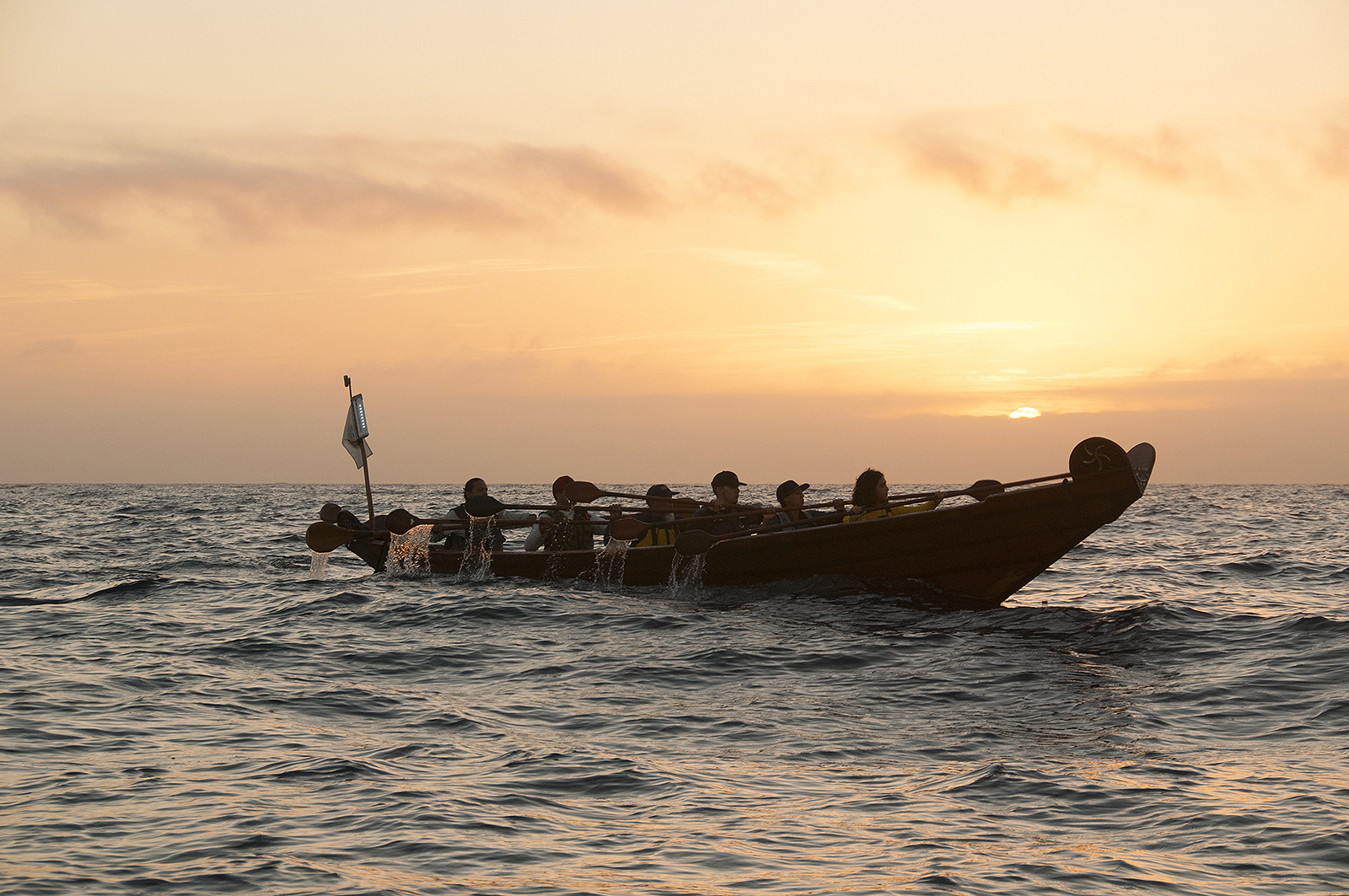
The proposed Chumash Heritage National Marine Sanctuary would protect sacred sites, hotspots of biodiversity, and productive marine habitats along the California coast
Silver Spring, Md. – November 9, 2021 – The National Marine Sanctuary Foundation joined tribal, national and community leaders in celebrating the initiation of Chumash Heritage National Marine Sanctuary’s designation process, announced today by the National Oceanic and Atmospheric Administration, and applauding members of the Northern Chumash Tribal Council for leading its nomination.
The proposed Chumash Heritage National Marine Sanctuary would protect culturally sacred sites, feeding grounds for numerous species of whales and dolphins, sea otter populations, kelp forests, and is home to vital commercial and recreational fisheries.
The designation is now open for public comment.
Located along the Central California coastline, from Gaviota Creek in Santa Barbara to Santa Rosa Creek in Cambria, the proposed Chumash Heritage National Marine Sanctuary is a culturally and biologically diverse seascape. These waters are an essential part of the heritage of the Chumash, one of the few ocean-going bands among the First People of the Pacific Coast. The area provides a very special sense of place to coastal communities and international visitors because of the significant historic, archaeological, cultural, aesthetic and biological resources found here.
Kris Sarri, president and CEO of the National Marine Sanctuary Foundation, said, “I am grateful to the Northern Chumash Tribal Council, and in particular Violet Sage Walker and her late father Fred Collins, for their tireless work to designate the Chumash Heritage National Marine Sanctuary. Today is an important milestone in the process and I hope NOAA will move quickly to designate this site as a national marine sanctuary. This sanctuary will conserve cultural sites and biodiversity that are critical to the Chumash people. I look forward to working with the Tribal Council, partners and NOAA to finalize the designation of this beautiful and sacred seascape for future generations.”
Violet Sage-Walker, chairwoman of the Northern Chumash Tribal Council, said, “Successfully designating the Chumash Heritage National Marine Sanctuary will protect ocean life, sacred Chumash sites, strengthen Indigenous communities and serve as a model of environmental justice. Today’s announcement marks a major milestone after more than 40 years of tireless advocacy for ocean protection, and also represents the first tribally nominated sanctuary in the nation. Today my father would be proud. This is one of the things he wanted to see the most.”
The Central Coast of California encompasses some of the most biologically diverse and ecologically productive regions in the world. The proposed sanctuary contains a key transition zone that includes vital upwelling supporting kelp forests, wetlands, estuaries and rookeries. Onshore, the Guadalupe-Nipomo Dunes are the largest remaining dune system south of San Francisco and the second largest in California. These diverse habitats are crucial for vulnerable species such as the endangered western snowy plover and the threatened southern sea otter and are also designated critical habitat for several species including the Chinook salmon and the leatherback sea turtle. Sustaining these vulnerable populations requires maintaining ecosystem diversity through protection of this wide variety of representative and unique habitats.
In addition to these submerged Chumash historic and cultural resources, there are also over 40 known historic shipwrecks in the region. The area encompassed by the proposed sanctuary contains Honda Point – site of the Navy’s worst peacetime loss of ships, as well as the gold-laden steamship S.S. Yankee Blade. Sanctuary designation would preserve these wrecks in perpetuity, allowing for study and interpretation of these historically, culturally, and archaeologically distinctive national treasures.
Chumash Heritage National Marine Sanctuary would join America’s national marine sanctuaries as the essential network of protected waters, which sustain miraculous species, coastal communities, and our shared heritage. The National Marine Sanctuary System currently includes 15 national marine sanctuaries and two marine national monuments. These unique waters sustain critical, breathtaking marine habitats that provide homes to endangered and threatened species. They preserve America’s rich maritime heritage and are living laboratories for science, research, education and conservation. Sanctuaries also offer world-class outdoor recreation experiences for all ages and support local communities. Communities across the nation look to sanctuaries to protect nationally significant areas of our ocean, coasts, and Great Lakes.
In October 2022, the nation will celebrate the 50th anniversary of the National Marine Sanctuaries Act. The 50th anniversary’s theme, “Save Spectacular,” is a year-long celebration of our great waters, inviting all people to discover the wonders of national marine sanctuaries and work together as stewards to conserve our ocean and Great Lakes.
###
The National Marine Sanctuary Foundation, established in 2000, is the official non-profit partner of the National Marine Sanctuary System. The Foundation directly supports America’s national marine sanctuaries through our mission to protect species, conserve ecosystems and preserve cultural and maritime heritage. We accomplish our mission through community stewardship and engagement programs, on-the-water conservation projects, public education and outreach programs, and scientific research and exploration. The Foundation fosters innovative projects that are solution-oriented, scalable and transferable, and develop strategic partnerships that promote the conservation and recovery of species and their habitats. Learn more at marinesanctuary.org.
Contact: Chip Weiskotten
Director of Strategic Communications
518-669-3936
chip@marinesanctuary.org
